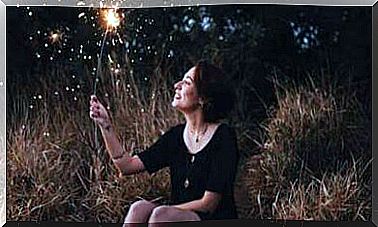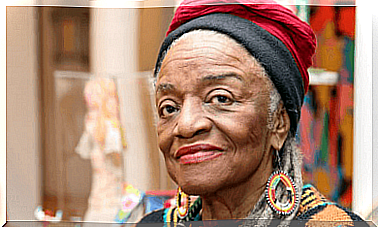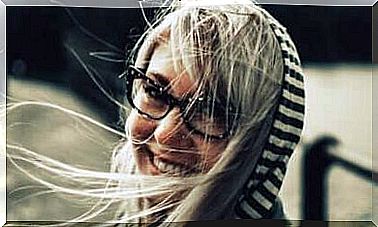Rollo Reece May, Father Of Existential Psychology
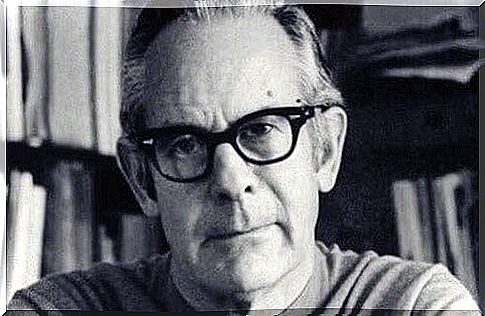
Rollo Reece May was certainly an innovator. It has allowed us to better understand how we deal with adversity. Together with Viktor Frankl, he brought into psychotherapy the existential and humanist vision necessary to stimulate growth, strengths, inner resources and the ability to make better decisions.
May’s best-known works, such as Love and Will , The Art of Counseling , The Meaning of Anxiety , are the expression of a revolutionary mentality. We cannot forget, moreover, that he has changed and questioned many ideas inherited from Freud and psychoanalysis.
May helped us find the courage to face fears and limitations; it has provided us with the tools necessary to exercise personal freedom and implement the imagined life path. He taught us to see beauty even in adverse situations and the inherent power of difficulties. In short, May offered us new eyes to look at the world and ourselves.
The search for meaning in life

Rollo R. May was born in Ada, Ohio, in 1909. He had a difficult childhood as the eldest of six siblings in a dysfunctional family. The parents were separated and the children often spent most of their day alone, taking care of each other. Not an easy task and aggravated by the schizophrenia one of her sisters suffered from.
After graduation, Rollo decided to change scenery for a while. He went to work in Greece, taking the opportunity to study philosophy and mythology, but had to return soon to the United States, attracted by family matters.
The experience in Greece had sown in the young man more doubts than answers, and once he returned to the United States he decided to move to New York to study theology.
Influences on Rollo May’s Thought
In 1939, while attending theology faculty, he wrote his first book, The Art of Counseling . In this essay, May addresses issues such as empathy, religion, personality disorders and mental health for the first time. After graduation, he began a new phase by studying clinical psychology at Columbia University.
In those years his work was again interrupted, this time by tuberculosis. It was a hard period in which, once again, he was assailed by doubt and the urgent need to understand the reason for his daily suffering and adversity.
Finally, he understood that his mission as a researcher and therapist was to help people find meaning in life and overcome difficulties by enhancing their potential.
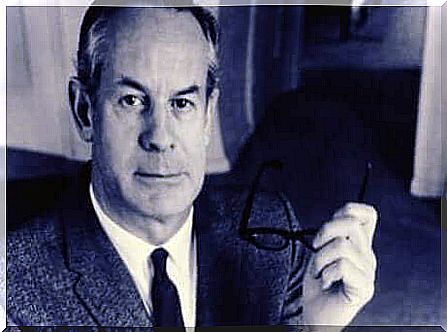
May’s theoretical approach rests on a wide range of currents. Among the main influences we mention:
- Otto Rank, psychoanalyst and colleague of Sigmund Freud. One of the best known figures in psychoanalysis, he innovated psychology with his existential and humanist approach. He was an important reference figure in Rollo May’s work.
- Equally important were the theories of humanist psychologists such as Abraham Maslow, although May’s interest was more focused on the difficulties of the human being than on his needs.
- Erich Fromm, more specifically his studies on self expression and free will.
The legacy of Rollo Reece May, existentialist psychologist
After his doctorate from Colombia University, Rollo May began working as a counselor, psychotherapist and lecturer at the New School for Social Research in New York. He also taught at Harvard, Yale and Princeton.
He is certainly best known for his books that caused a sensation in both academia and society at the time. Works such as The Man in Search of Self, Love and Will, The Meaning of Anxiety and The Courage to Create were enthusiastically received around the world.
The APA (Association of American Psychologists) awarded him for his contribution to clinical psychology with which he allowed us to understand the existential dilemma of modern man. He spent the last years of his life in Tiburon, San Francisco, where he died in 1994 at the age of 85.
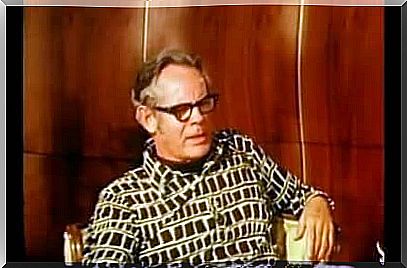
May’s contribution to psychology
- He introduced existentialism into psychology. This perspective makes use of a positive approach that values the abilities and aspirations of the human being. At the same time, however, it recognizes its limitations.
- It helped us understand the underlying mechanisms of suffering and crisis, combining existentialism and humanism.
- He has focused much of his work on the study of anxiety. It has thus allowed us to see anxiety in a different way, as a catalyst that stimulates us to make more courageous decisions.
In short, Rollo Reece May initiated a psychotherapeutic approach based on dialogue, the aim of which is to provide the patient with strategies to face life in a more decisive, courageous and rational way, rather than leading him to well-being and happiness.

